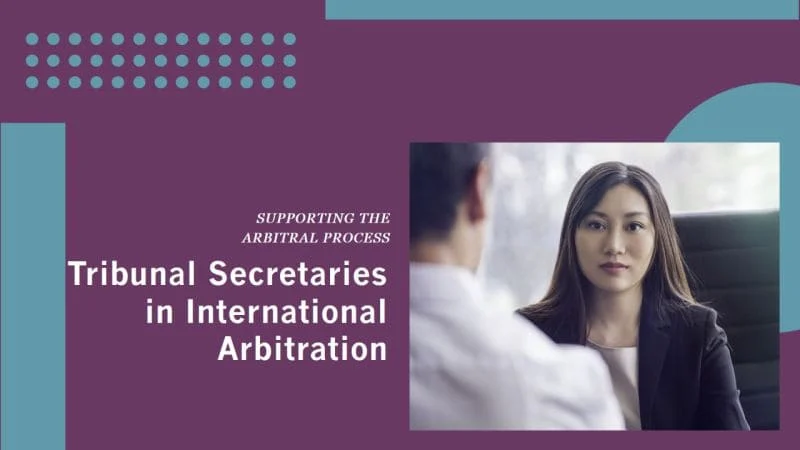The Arbitrator retains jurisdiction to issue clarification even after he becomes functus officio – Supreme court of India.
Case title – North Delhi Municipal Corporation vs. S.A. Builders Ltd. (17.12.2024 – SC) : MANU/SC/1350/2024
Facts:
👉Respondent was awarded a contract work relating to construction of approaches to flyover by the Appellant. A contract agreement was entered into between the parties. The work however could not be completed and, therefore, the work had to be closed in an incomplete form and no payments were made to the Respondent. As a result, dispute arose between the parties and matter was referred to arbitration. Arbitral Tribunal passed award, and sum was awarded to the Respondent with simple interest. Respondent filed an execution petition before the High Court for execution of the arbitral award.
👉When the matter was placed before the Division Bench, Respondent sought leave to approach the Arbitrator for seeking the clarification in respect of interest awarded. Division Bench granted such permission to the Respondent. Arbitrator after hearing the parties issued a clarifications-à-vis payment of interest.
👉Arbitrator clarified that post-award interest shall be payable on the awarded sum i.e. on the amount of claim awarded plus the interest for the pre-reference period as well as interest pendente lite from the date of the award till it was paid. Against the clarification of the Arbitrator, an application was filed by the Appellant before the Single Bench for setting aside the said clarification.
👉The Single Judge held that Arbitrator had become functus officio and, therefore, had no authority to entertain the application for clarification. Against the order, Respondent preferred an appeal before the Division Bench in which it was held that the amount covered by the compound interest was not payable. Assailing the order of the Division Bench, Respondent preferred SLP before this court.
👉This court allowed civil appeal of the Respondent by directing that the interest component payable to the Respondent shall be computed in accordance with the law laid down in M/s. Hyder Consulting (UK) Ltd. Resultantly, the decisions of the Single Bench as affirmed by the Division Bench were set aside.
👉Thereafter, Appellant filed an application before the executing court for recall of the direction for deposit of the additional interest. The Single Judge held that Respondent would be entitled to post-award interest not only on the claims as awarded but also on the pre-award interest.
👉The said judgment and order of the Single Judge was assailed by the Appellant in appeal before the Division Bench. The Division Bench thereafter passed the impugned order rejecting the contention of the Appellant that the Arbitrator had no jurisdiction because this Court had directed that the High Court would decide the issue of interest component payable to the Respondent in accordance with the law laid down in M/s. Hyder Consulting (UK) Ltd. and not in accordance with S.L. Arora. That apart, such a contention was not available to the Appellant at the stage of execution proceeding.
👉Therefore, with the consent of the parties, Division Bench set aside the operative part of the order pertaining only to the calculations and permitted both the parties to make submissions restricted to the quantum of the amount payable to the Respondent. Single Judge was requested to decide the amount payable to the Respondent after hearing both the sides.
Held, while dismissing the appeal:
(i) The impugned order was a consent order. Division Bench of the High Court after taking the consent of the parties had remitted the matter back to the High Court only as to the calculations permitting both the parties to make submissions before the Single Judge on the quantum payable to the Respondent. If that be the position, it was not open to the Appellant to assail the said order.[57]
(ii) The clarification sought for and issued by the learned Arbitrator would be covered by the expression unless another period of time had been agreed upon by the parties appearing in Section 33(1) of the 1996 Act. This was a case where court had permitted the Respondent to seek clarification from the learned Arbitrator beyond the initial period of thirty days whereafter the Appellant fully participated in the clarificatory proceeding.
Therefore, the present case would be covered by the said expression. In the circumstances, contention of the Appellant that the learned Arbitrator had become functus officio and therefore lacked jurisdiction to issue the clarification could not be accepted and was thus rejected.[59]
(iii) It was not the case of the Appellant that the interest portion is covered by the contract agreement between the parties. In the absence thereof, Section 31(7)(a) as well as Section 31(7)(b) of the 1996 Act would have their full effect. The sum awarded would mean the principal amount plus the interest awarded from the date of cause of action upto the date of the award.
Thereafter, as per Section 31(7)(b) of the 1996 Act, the sum (principal plus interest) would carry interest at eighteen percent from the date of the award to the date of payment. This would be consistent with the law laid down by this Court in M/s. Hyder Consulting (UK) Ltd.[60]
Conclusion
59. In view of what we have discussed above, the interpretation given by us to Section 33(1) of the 1996 Act and on a cumulative assessment of the attendant facts and circumstances of the case, we are of the view that the clarification sought for and issued by the learned Arbitrator would be covered by the expression unless another period of time has been agreed upon by the parties appearing in Section 33(1) of the 1996 Act.
This is a case where court had permitted the Respondent to seek clarification from the learned Arbitrator beyond the initial period of 30 days whereafter the Appellant fully participated in the clarificatory proceeding. Therefore, the present case would be covered by the above expression. In the circumstances, contention of the Appellant that the learned Arbitrator had become functus officio and therefore lacked jurisdiction to issue the clarification cannot be accepted and is thus rejected.
Note: Please find Judgement Copy below 👇






